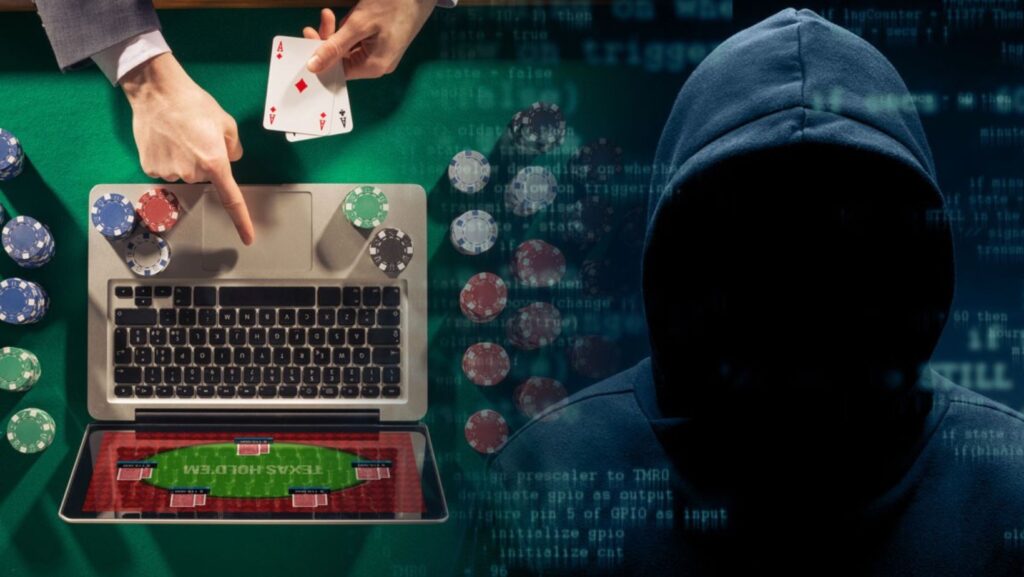In the modern digital age, the online casino industry has experienced tremendous growth, offering players worldwide the opportunity to enjoy their favorite games from the comfort of their homes or on the go. However, with this convenience comes the crucial issue of cybersecurity. Protecting sensitive player information is paramount, and online casinos must employ robust security measures to ensure their customers’ data remains safe.
This blog will explore the role of cybersecurity in online casinos and provide insights into how these platforms protect your data.
The Importance of Cybersecurity in Online Casinos
Cybersecurity is the practice of protecting systems, networks, and programs from digital attacks. In the context of online casinos, it involves safeguarding players’ personal and financial information from cybercriminals. Given the volume of transactions and sensitive data processed by these platforms, cybersecurity is not just an option but a necessity. Without adequate security measures, players risk falling victim to identity theft, financial fraud, and other malicious activities.
Key Cybersecurity Measures Employed by Online Casinos
Encryption Technology
Encryption is a fundamental aspect of cybersecurity. Online casinos use advanced encryption technologies to protect the data transmitted between players and the casino’s servers. This ensures that any sensitive information, such as personal details or payment information, is unreadable to unauthorized parties. The most commonly used encryption standard is Secure Socket Layer (SSL) or its successor, Transport Layer Security (TLS). These protocols encrypt data in transit, making it virtually impossible for hackers to intercept and decipher the information.
Firewalls
Firewalls are critical in preventing unauthorized access to a casino’s network. They act as a barrier between the internet and the casino’s internal systems, monitoring incoming and outgoing traffic to block suspicious activity.

Firewalls help to prevent cyberattacks such as Distributed Denial of Service (DDoS) attacks, which can overwhelm and disrupt the casino’s operations.
Two-Factor Authentication (2FA)
Two-factor authentication adds an extra layer of security by requiring players to provide two forms of identification before accessing their accounts. Typically, this involves something the player knows (a password) and something they have (a code sent to their mobile device). 2FA significantly reduces the risk of unauthorized account access, even if a password is compromised.
Regular Security Audits and Testing
To ensure their security measures remain effective, reputable online casinos conduct regular security audits and penetration testing. These audits are performed by independent cybersecurity firms that assess the casino’s defenses and identify any vulnerabilities. Penetration testing involves simulating cyberattacks to evaluate the casino’s response and resilience. By continuously monitoring and improving their security protocols, online casinos can stay ahead of potential threats.
Secure Payment Gateways
Payment security is a critical aspect of online casinos. They employ secure payment gateways that adhere to the Payment Card Industry Data Security Standard (PCI DSS). These gateways ensure that all transactions are processed securely, protecting players’ financial information from theft and fraud. Additionally, many casinos offer a range of secure payment methods, such as e-wallets and cryptocurrencies, which provide an added layer of protection.
Player Responsibilities in Ensuring Data Security
While online casinos implement robust cybersecurity measures, players also have a role to play online gambling real money in protecting their data. Here are some best practices for players to follow:
Use Strong, Unique Passwords
Players should create strong, unique passwords for their casino accounts. Avoid using easily guessable information, such as birthdays or common words.

A strong password typically includes a mix of letters, numbers, and special characters.
Enable Two-Factor Authentication
Wherever possible, players should enable two-factor authentication on their accounts. This adds an extra layer of security, making it harder for cybercriminals to gain access.
Stay Vigilant Against Phishing Attacks
Phishing attacks are a common method used by cybercriminals to steal personal information. Players should be cautious of emails or messages that ask for sensitive information or direct them to suspicious websites. Always verify the legitimacy of any communication before providing personal details.
Keep Software Updated
Ensure that your device’s operating system and any antivirus software are kept up to date. Software updates often include security patches that protect against known vulnerabilities.
Monitor Account Activity
Regularly check your casino account and bank statements for any suspicious activity. Early detection of unauthorized transactions can help mitigate potential damage.
The Future of Cybersecurity in Online Casinos
As technology advances, so do the methods employed by cybercriminals. Online casinos must stay ahead of these threats by continuously evolving their cybersecurity measures. Emerging technologies, such as artificial intelligence (AI) and machine learning, are being integrated into cybersecurity strategies to detect and respond to threats more effectively. AI can analyze vast amounts of data to identify patterns and anomalies, helping to prevent cyberattacks before they occur.
Conclusion
The role of cybersecurity in online casinos is crucial for protecting players’ data and maintaining trust in the industry. By employing advanced security measures such as encryption, firewalls, two-factor authentication, and regular security audits, online casinos can safeguard sensitive information and provide a secure gaming environment.
However, players must also take responsibility for their own security by following best practices and staying vigilant against potential threats. Together, these efforts ensure that the online casino experience remains safe and enjoyable for everyone.


More Stories
Spin & Win: Your Guide to Playing Online Slots Like a Pro
AI’s Unseen Edge: Security Risks and Ethical Concerns in Gaming and Media
The Power of a Strong Start: Why Gaming Platforms Reward New Players So Generously